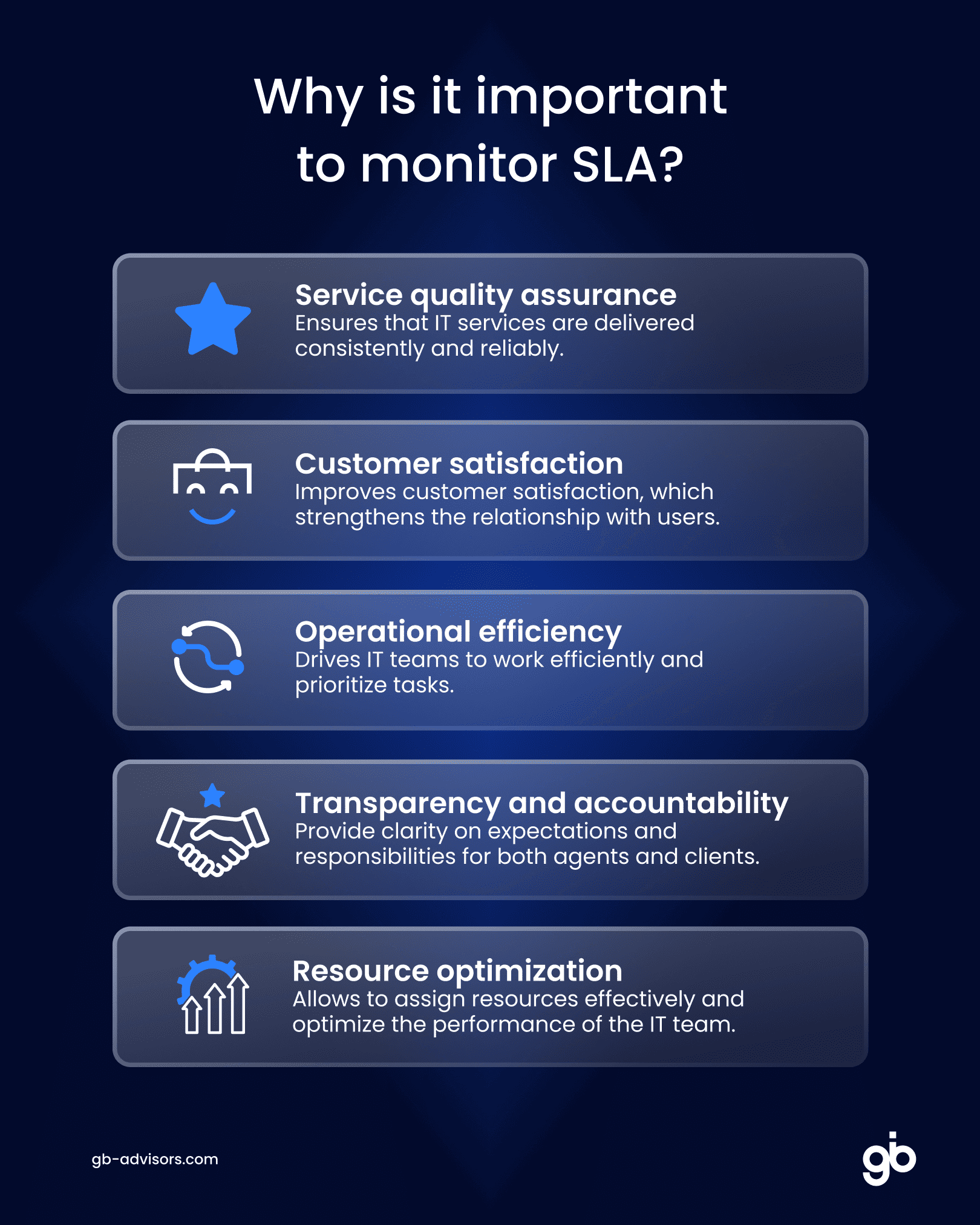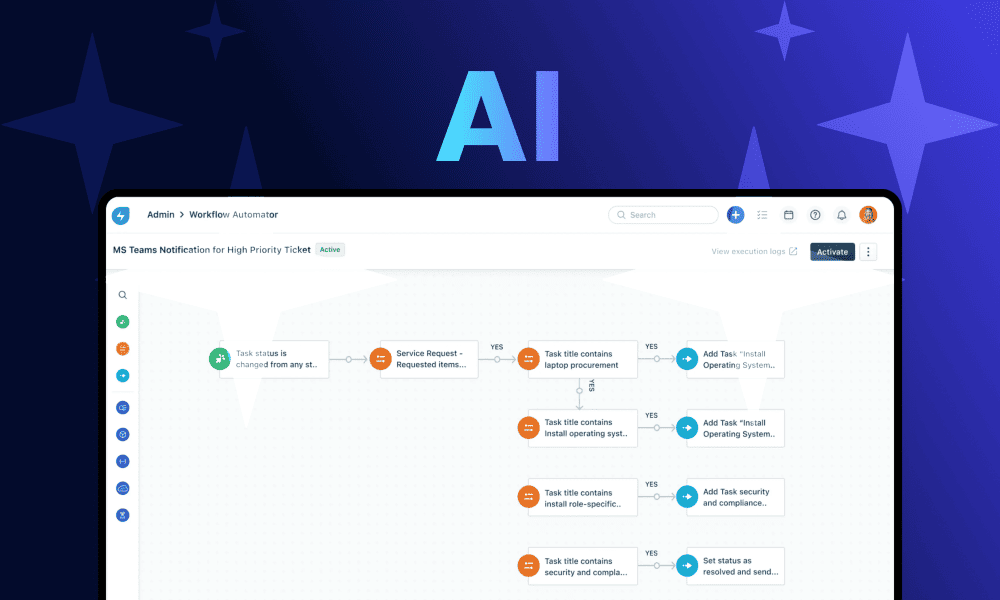Imagine you are looking at your monitor and you begin watching as your ticket tray grows rapidly. Each request represents an anxious voice seeking help or an urgent task demanding attention. So as you move through the ticket management process, you become trapped in a tangle of requests, struggling to prioritize, assign resources, and meet customer expectations.
This scenario is just a sample of the complexity that IT agents face every day in handling support cases. However, the question that persists is: how can they effectively navigate this maze of requests, ensuring a timely response and effective resolution for each incident?
The answer, to a large extent, lies in the strategic integration of Artificial Intelligence (AI) into customer service processes. This technology not only offers innovative solutions but also opens the door to a new world of operational efficiency, service personalization, and continuous improvement.
In this blog post, we will discuss how AI has become a key tool for optimizing ticket management. We’ll also show you how intelligent automation and optimized routing can transform the way you service your customers’ requests.
Let’s start our journey by analyzing the challenges faced by the IT department in managing user requests.
What are the challenges in IT ticket management?
Request management in the IT department presents several challenges that can hinder operational efficiency and customer satisfaction. If these challenges are not addressed on time, they can become a source of stress for agents and affect the company’s reputation.
Ticket overload: Managing multiple channels can overload and affect operational efficiency.
Ticket assignment: Coordinating manual ticket assignments is challenging and error-prone, which can delay problem resolution.
Long resolution time: Manual processes and limited resources can lengthen response times, affecting the customer experience.
Lack of visibility and monitoring: The absence of an adequate monitoring system makes it difficult to identify trends and areas for improvement in ticket management.
Overcoming these challenges requires a strategic approach that integrates innovative solutions, such as artificial intelligence. Below, we will explore how this technology can help you address these challenges effectively, optimizing the management of your tickets.
What are the benefits of Artificial Intelligence in IT ticket management?
Artificial intelligence has quickly become a powerful ally in customer service management, offering innovative solutions to overcome the main challenges of this process. Through advanced algorithms and machine learning capabilities, AI can radically transform the way IT handles support requests.
An example of this technology is the Freddy Copilot add-on available for Freshservice. This integration allows agents to set up predefined responses, get ticket summaries, and automatically create help articles.
Another advantage of AI systems is that they can identify patterns in requests and automate the resolution of recurring problems. This speeds up response times and reduces the operational burden on support teams.
Next, we will explore with concrete examples how these AI capabilities translate into tangible benefits for IT ticket management.
Automation and intelligent sorting
Automation and intelligent ticket classification are among the main tools that AI offers to streamline customer service tasks. These capabilities not only ease agents’ operational duty but also improve accuracy and effectiveness in ticket management.
Intelligent automation:
By implementing automation in IT department processes, the workload associated with repetitive tasks can be significantly decreased. AI can be programmed to identify common patterns in support requests and perform predetermined actions, such as providing automated responses to frequent queries or executing solutions to known issues.
Suppose a company experiences a common outage in access to certain applications. An AI-enabled service desk software could automatically diagnose the known root cause of this problem and apply a pre-determined solution, all before a support agent has to intervene. This not only reduces downtime but also optimizes the use of IT resources.
Automatic ticket sorting:
Ticket classification allows us to ensure that each request is handled appropriately and efficiently. AI systems, using advanced natural language processing (NLP) techniques, can analyze the content of requests and automatically assign relevant labels and categories. This facilitates the subsequent allocation of resources and prioritization of tickets according to their urgency and complexity.
Imagine that a customer mails you a support request related to one of your servers. The AI analyzes the subject of the email and automatically tags the ticket. This tagging allows the request to be assigned to the IT agent with the necessary expertise to deal with such problems, avoiding unnecessary delays and ensuring a specialized response.
2. Routing and resource allocation
In IT ticket management, routing, and resource allocation are critical elements to ensure a timely response to support requests. In this context, AI plays a key role in optimizing these processes, maximizing resource utilization, and improving the customer experience.
Intelligent Routing:
By analyzing multiple variables, such as problem complexity, competencies, and SLAs, AI can help you better distribute requests. It can therefore ensure that each case is routed to the most qualified agent for resolution.

Let’s see it with a practical example, imagine you receive a ticket related to a network failure. AI, by analyzing the technical nature of the issue and the expertise of the agents, can automatically route the ticket to the most appropriate specialist. This maximizes the likelihood of a quick resolution and improves the customer experience.
Resource Allocation:
AI also facilitates efficient resource allocation by analyzing agent workload and distributing incoming requests fairly. Using machine learning algorithms, this system can predict resource needs and dynamically adjust allocations to ensure a balanced distribution and timely response to each request.
For example, if an agent is overloaded, the AI can temporarily assign some requests to other agents with less workload. This ensures that all tickets receive proper attention and avoids bottlenecks in the resolution process.
3. Data Analysis and Continuous Improvement
By leveraging the vast pool of data generated by customer interactions and IT team responses, AI systems can identify trends and areas for improvement that might otherwise go unnoticed.
Identification of trends and patterns:
Artificial intelligence solutions can analyze large volumes of ticket data to identify emerging patterns. This includes detecting recurring problems, areas of high demand, and evaluating the effectiveness of ticket management.
With a deeper understanding of these trends, IT leaders are empowered to make more informed and strategic decisions. As a result, they can improve service quality and prevent problems that affect customer satisfaction.
By analyzing data intelligently, businesses can also work on solutions that address the root cause of failures, thus avoiding service interruptions.
Feedback and continuous improvement:
By using AI to analyze customer feedback and evaluate IT team performance, your company can identify areas for improvement and take corrective action to optimize ticket handling.
As an example, let’s say your company, after each customer interaction, sends out a survey to collect feedback on the support experience. Analyzing this data, you identify that agents need to improve their soft skills, so you create a training plan to address these concerns.
Conclusion
When considering the challenges present in ticket management, it is clear that AI offers innovative solutions that can effectively address these issues. Intelligent automation, automated sorting, and data analytics are just some of the benefits that AI can offer, providing a path to operational excellence and customer satisfaction.
However, the successful implementation of this technology is not without its challenges. Systems integration, staff training, and change management are critical considerations that must be addressed with care and attention. A strategic and people-centric approach is essential to ensure an effective transition and adoption of AI solutions.

Despite these challenges, the potential of artificial intelligence to transform customer service is undeniable. By leveraging its capabilities, organizations can optimize their processes, improve operational quality, and, most importantly, deliver exceptional customer experiences.
Embracing this transformation is an important step in the constant pursuit of excellence and innovation in technical support, which empowers companies to position themselves for success in an ever-evolving digital world.



